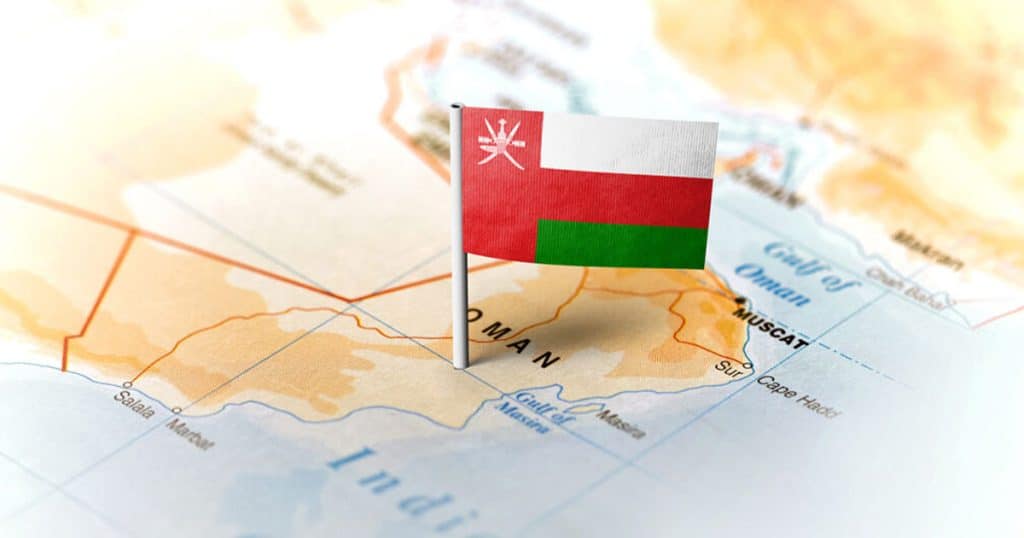+968 9596 3381
Phone Number
[email protected]
Email Address
Mon - Thu: 8:00 - 5:00
Online store always open
Phone Number
Email Address
Online store always open
WhatsApp Us Today
Drop Us an Email Today
Google Map Location
Saturday to Thursday

As Oman powers ahead with its Vision 2040 economic strategy, the Sultanate is opening up unparalleled opportunities for joint ventures (JVs) across sectors like energy, logistics, technology, agriculture, tourism, and industrial manufacturing.
Whether you’re a multinational entering the GCC market, an SME seeking scale, or a local Omani company looking to access foreign technology or capital, joint ventures in Oman are a smart way to combine strengths, reduce risk, and win major government and private contracts.
In this complete guide, we explore how joint ventures work in Oman, the key sectors offering JV potential, regulatory frameworks, legal structures, profit-sharing models, and how to find the right local or foreign partner.
A joint venture in Oman is a formal or informal partnership between two or more parties—Omani, foreign, or both—created to carry out a specific project or long-term business collaboration. JV partners share:
Capital investment
Profits and losses
Operational roles
Risks and responsibilities
Joint ventures in Oman can be structured as:
Registered entities (e.g., LLC with joint shareholders)
Unregistered contractual JVs (for single projects, often in construction)
Note: JVs are commonly used in public-private partnerships (PPPs), government contracts, and large industrial or infrastructure projects.
Foreign businesses gain access to Oman’s market, licensing system, and government incentives through an Omani partner.
Many public contracts require local participation. JVs with registered Omani entities meet these conditions.
You spread financial and operational risk, especially in capital-intensive or regulated sectors.
In areas like oil & gas, logistics, or mining, joint ventures are preferred models for compliance and strategic alignment.
Oman’s diversification efforts are creating high-potential JV openings in:
| Sector | Opportunity |
|---|---|
| Energy & Green Hydrogen | Solar, wind, hydrogen production partnerships |
| Logistics & Transport | Warehousing, ports, and GCC connectivity infrastructure |
| Mining & Resources | Copper, gypsum, limestone, rare minerals |
| Tourism Development | Hotel chains, eco-resorts, entertainment zones |
| Healthcare | Specialty clinics, pharma manufacturing, medical tourism |
| ICT & Cybersecurity | Cloud infrastructure, fintech, smart city solutions |
| Aquaculture & Agriculture | Fish farming, irrigation tech, food processing |
| Education & Training | Private universities, vocational centers, e-learning |
Many of these are backed by government tenders, tax incentives, or PPP frameworks.
Most common structure
Registered with MoCIIP
Requires clear MOA (Memorandum of Association) and capital contributions
Shareholding can reflect each partner’s input (foreign ownership up to 100% in most sectors)
Used for single projects like construction or consulting tenders
No CR issued; based on a private agreement
Each partner is liable for their scope under the contract
Must still meet legal and tax requirements
Governed by Oman’s PPP Law (Royal Decree 52/2019)
Long-term strategic projects with government entities
Often involve 30+ year contracts and state land grants
Requires formal bidding, qualification, and MoCIIP/authority approvals
A JV agreement must clearly define:
📌 Capital contribution by each party
📌 Profit and loss sharing ratio
📌 Decision-making structure (management board, voting rights)
📌 Scope and duration of the JV
📌 Exit clauses, buy-sell terms, and dispute resolution
📌 IP ownership and technology rights (in innovation-heavy sectors)
Pro Tip: All agreements must be legally translated into Arabic, notarized, and, if registered, submitted to MoCIIP.
Foreign partners must be licensed to operate in Oman, either directly or through the JV
VAT (5%) applies to most JV activities—register the JV with the Tax Authority
Corporate tax rate: 15% (3% for small entities under certain conditions)
Free Zones like Duqm, Sohar, Salalah offer 0% tax holidays for up to 10 years for JV-registered companies
If you’re partnering in a regulated sector (mining, oil & gas), you’ll need sector-specific permits, and may face Omanization quotas for workforce.
Business setup firms like SetupInOman or PI Startup Advisory help connect foreign investors with vetted Omani companies
Duqm, Sohar, and Salalah Free Zones host regular investment forums and partner-matching platforms
Attend trade exhibitions, business delegations, and roundtables hosted by OCCI
Oman’s InvestEasy portal, industrial zone directories, and tender boards publish JV invites and opportunities
Tip: Vet the partner’s financial history, existing licenses, legal standing, and project experience.


If your joint venture is registered as a mainland company (LLC or branch), you must comply with Omanization policies, which require hiring a minimum percentage of Omani nationals based on your business sector.
| Sector | Omani Workforce Required |
|---|---|
| Retail & Wholesale | 20–25% |
| Construction & Engineering | 10–15% |
| Industrial Manufacturing | 20–30% |
| Logistics & Warehousing | 15–25% |
| Healthcare & Education | 30–40% |
Joint ventures should plan their HR and training budgets accordingly and may qualify for Omanization incentives, including:
Labor clearance priority
Subsidies or exemptions from some permit fees
Access to public tenders
Free Zones often provide Omanization grace periods (e.g., 3–5 years), which is useful for startups and capital-heavy projects.
One major area of negotiation in joint ventures is who owns what—especially in ventures involving proprietary technology, software, or brand assets.
IP Ownership: Define if tech/tools developed during the JV belong to one party or are jointly owned
Licensing Agreements: Clarify if one party licenses IP to the JV or to the partner
Royalty Structures: If a brand/franchise model is used
Profit Distribution: Typically based on capital, but can be negotiated (e.g., 60/40 split for 50/50 equity if one partner brings IP)
All such terms must be part of the joint venture agreement and acknowledged during MoCIIP registration (if applicable).
No matter how promising a partnership looks at the beginning, planning your exit options is critical. A good JV agreement should outline:
For example, dissolve the JV after 5 years or after completing a construction project
Allows one partner to offer to buy out the other, often at a pre-agreed formula (EBITDA multiple, capital repayment, etc.)
If there’s a tie in voting, use a third-party arbitrator or alternate voting rights
Oman usually prefers local courts, but parties can agree to international arbitration (e.g., DIFC or LCIA)
Define who keeps what in case of dissolution—especially for tech or knowledge-based JVs
Tip: Legal disagreements often stall operations. Having a clean, notarized agreement in both English and Arabic reduces future legal battles.
Oman’s government actively promotes PPPs and JV collaborations through:
Oman Vision 2040 initiatives
Public Authority for Special Economic Zones and Free Zones (OPAZ)
Tender Board issuing RFPs for infrastructure, energy, tourism, and transport
Ministries like Housing, Health, Education, and Agriculture
Recent public-private joint venture projects include:
Hydrogen Oman (Hydrom): Green hydrogen projects with global energy firms
Duqm Refinery: JV between OQ and Kuwait Petroleum
Blue Waters Aquaculture: Omani-European fish farming joint venture
Sohar Port Expansion: Global logistics JV with local companies
Free Zones like Sohar, Salalah, and Duqm offer strong support for joint ventures:
| Benefit | Free Zone JV Advantage |
|---|---|
| 100% Foreign Ownership | Allowed, or shared with Omani partner if desired |
| Tax Holiday | 0% for up to 10 years |
| No Customs Duties | On imports/exports through the zone |
| Easy Hiring of Expats | Flexible labor rules and visa quotas |
| Fast Licensing & Setup | Within 5–10 business days |
Free Zones often have dedicated investment desks to help match local firms with foreign partners for JV formation.




An Omani government-led green energy platform forming multi-billion-dollar JVs with Shell, BP, and Marubeni for clean hydrogen production.
Joint venture in aquaculture between Omani investors and European marine experts, producing 3,000+ tons of seabream with BAP certification.
A public-private JV in utilities, combining international tech with local execution.
These models demonstrate Oman’s openness to long-term, equity-based collaborations that drive industrial innovation and economic diversification.
Joint ventures in Oman are more than just legal structures—they are strategic alliances that blend local insights with global innovation. With the right partner, JV agreements can unlock:
Public contracts
Industrial land allocations
Talent and resource access
Long-term tax and legal benefits
Whether you’re a foreign investor seeking an Omani ally, or a local company looking to go international, the joint venture route offers a scalable, sustainable, and secure way to do business in the Sultanate.
Q1: Can I enter a joint venture in Oman as a 100% foreign company?
Yes, in most Free Zones. For mainland JVs, a local partner may be required depending on the activity.
Q2: Do JVs need a trade license in Oman?
Yes—if operating as a registered entity. Contractual JVs for short-term projects don’t need CR but still require sectoral approvals.
Q3: Can the government be my JV partner in Oman?
Yes. Many infrastructure and industrial projects are done via PPP or government JVs, especially through OQ, OPAZ, or Hydrom.
Q4: Is it safe to enter an unregistered JV in Oman?
It’s legal but riskier. Always draft a proper private agreement, have it notarized, and consult a local legal advisor.
Q5: Can a JV own land or industrial space in Oman?
Yes—registered JVs can lease or own land (under Omani partner’s name in some cases) and operate from industrial estates or Free Zones.





Let us handle your company registration, office setup, and licensing to ensure a seamless process.
What is the minimum investment required to qualify for a residency visa in Oman?
The minimum investment typically starts from OMR 20,000 for standard investor visas. However, the Golden Visa program requires investments starting from OMR 250,000.
Can I own 100% of my business in Oman as a foreign investor?
Yes, Oman allows 100% foreign ownership in most sectors, especially under the Foreign Capital Investment Law. Some regulated sectors may require local participation.
Is real estate investment enough to obtain a residency visa in Oman?
Yes, under the Golden Visa category, purchasing property worth at least OMR 250,000 can qualify you for long-term residency.
What is the difference between the Golden Visa and the Standard Investor Visa?
Golden Visas offer longer residency terms (5–10 years), faster processing, and broader eligibility, while Standard Investor Visas require lower investment but shorter duration and renewals.
How long does the investor visa process take?
On average, it takes 4 to 8 weeks, depending on security clearance, company registration, and documentation accuracy.
Can I apply for residency before launching my business?
You must complete company registration and capital deposit before applying for the residency visa under the business investor category.
Is it necessary to open a corporate bank account in Oman for this process?
Yes, you need to deposit the minimum share capital into a corporate account to receive the capital deposit certificate, which is essential for visa processing.
Are there any age or nationality restrictions for investor visas?
There are no age restrictions, and citizens from most countries are eligible, although background checks and financial verification are required.
Do I need a physical office in Oman for my business registration?
Yes, a registered office address is mandatory — this can be a virtual office, shared workspace, or physical premises, depending on your business type.
What types of businesses are best for investment-based residency?
Tourism, tech, healthcare, logistics, real estate development, and manufacturing are some of the most attractive sectors for foreign investors.
Is free zone investment also eligible for residency visas?
Yes, businesses established in Oman’s free zones like Duqm or Salalah can qualify, though some limitations apply based on visa type and activity scope.
Can I bring my family with me under an investor visa?
Yes, investor visa holders can sponsor family members including spouse and children, subject to documentation and proof of income.
What are the key documents required for an investor visa application?
Passport copies, security clearance, MOA, business license, capital deposit certificate, tenancy contract, and recent photographs are commonly required.
Do I need to hire local employees?
While not mandatory in all cases, certain sectors may require a minimum Omanization rate to qualify for full operational licensing and staff visa issuance.
What happens if I close my company after receiving the residency visa?
Your visa may be cancelled unless you transfer your sponsorship or obtain a different qualifying residency basis (e.g., real estate or employment).
How long is the investor visa valid?
Standard visas are issued for 2–5 years and renewable; Golden Visas are valid for 5 or 10 years, depending on the investment category.
Can I operate multiple businesses under one investor visa?
Yes, but you must ensure each entity is properly registered, and you hold a qualifying ownership percentage in each.
Are there any tax advantages for foreign investors?
Oman offers no personal income tax and competitive corporate tax rates (15%). Free zones also offer tax holidays for up to 10 years.
Can I change business activities after obtaining a visa?
Yes, but you must update your commercial registration and possibly re-obtain approvals or licenses depending on the new activity.
Is a local sponsor required for mainland businesses?
Not anymore in most sectors. Since the law change in 2020, most businesses can be 100% foreign-owned without requiring a local partner.
How do I maintain my visa status if I spend time abroad?
Investor visas typically allow you to spend time abroad, but extended absence (6+ months) may affect renewal or validity, unless explained.
Are digital or online businesses eligible?
Yes, tech and e-commerce businesses are highly encouraged and eligible for both investor and long-term residency options.
Do I need to show ongoing revenue to maintain the visa?
Not always, but inactivity or lack of compliance may risk rejection during renewal. Annual filings and proof of operation are recommended.
Can I apply for residency through an existing business I acquire?
Yes, provided you meet ownership thresholds and the business is compliant with all legal, tax, and licensing requirements.
What is the role of the Oman Investment Authority in this process?
OIA supports large-scale strategic investments, especially in sectors aligned with Vision 2040. Smaller businesses work mainly with MOCIIP and ROP.
Is the visa tied to one company or can I invest in multiple?
You can invest in multiple companies, but your primary residency visa will be tied to the company where you have majority stake or initial approval.
Do I need health insurance for the investor visa?
Yes, valid health insurance is a prerequisite during visa application and renewal processes.
How much capital is required for the Golden Visa through real estate?
You must invest at least OMR 250,000 in approved properties; for 10-year visas, the amount increases to OMR 500,000 or more.
What is the role of the Royal Oman Police (ROP) in this process?
ROP handles visa issuance, background verification, residency cards, and security clearances.
Can I get citizenship through business investment in Oman?
Currently, Oman does not offer direct citizenship-by-investment programs. However, long-term visa holders may be eligible for permanent residency or naturalization under exceptional circumstances.
Fill out our quick and easy contact form below. Briefly tell us about your vision and goals, and we’ll be in touch shortly to discuss a personalized plan for your success.
Al-Khuwair, Muscat, Sultanate of Oman